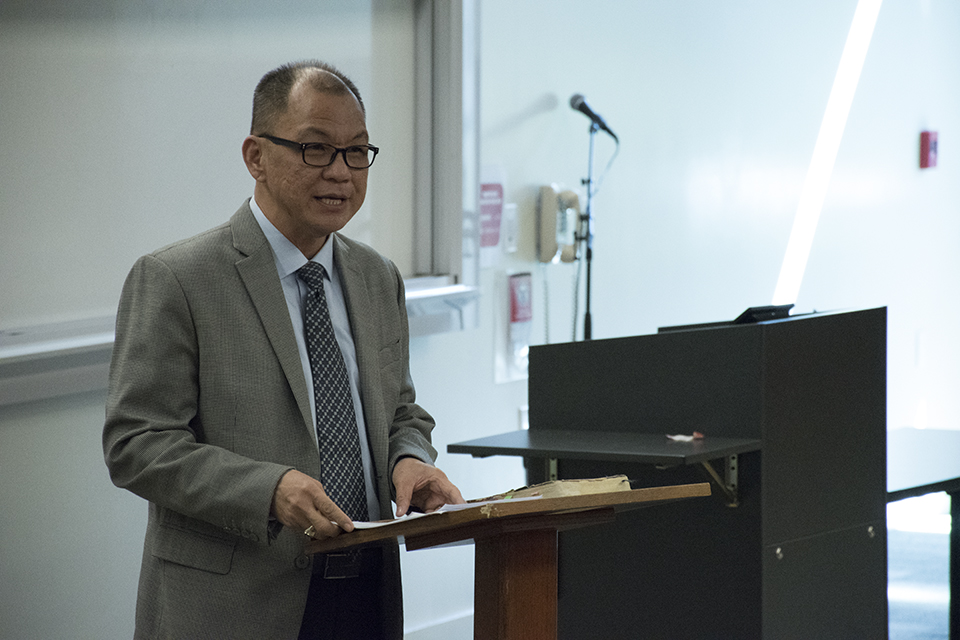As students in the Crowell School of Business learn about doing business as ministry, the Crowell staff decided to expand their statement to global missions by hosting a chapel on May 8.
Sustainable funding
The chapel focused on the sustainable model of businesses to fund missions, with Operation Mobilization international director Lawrence Tong leading the discussion. He shared several points on how mission organizations need to reinvent themselves rather than being comfortable in their work.
Tong highlighted bringing one’s gifts and talents, such as one’s profession, into the mission field rather than abandoning them to become a full-time missionary, which he calls disruptive thinking. He also mentioned how this disruptive thinking will help mission organizations stay relevant to the times and people.
“We can tap into this thinking and provide places and job opportunities for these Christians to work [overseas] but to continue on with their Christian witnessing. So instead of telling them you got to leave your profession and be a full-time missionary, we are saying come and be a full-time missionary but bring your profession with you,” Tong said.
Future-minded
Dean of the Crowell School of Business Gary Lindblad believes this mission aligns with what they hope to teach students now in preparing them for the future.
“I hope that… [students] would really see ‘Wow, there is an alignment in that the things that I’m learning here are applicable around the world’ and that you can go from Biola, you can go from the Crowell School of Business to anywhere and add value and be used by God in the kingdom,” Lindblad said.
Students in the business program attended the event to learn more about this topic, such as freshman Naomi Loftsgard, who believes coming into the business program at Biola will help her learn to integrate business and missions. Loftsgard found the sustainability of missions possible through a story Tong told about German-style apartments being built in Zambia and how the money from the renters went to mission work.
Business integration
“I learned that a sustainable model of missions is actually doable,” Loftsgard said. “I think one that was really interesting was how he talked about the German buildings that they built in Zambia and how they almost accidentally found a market for German housing and how successful that was.”
Tong discussed several stories of God’s provision for mission work through business opportunities, such as farming in China to have free food, housing and care for disabled people there.
“What God has showed us is that such creativity has a place in the kingdom of God. There’s no need to dichotomize, ‘If we are full-time missionaries then we cannot be farmers.’ We can be farmers and serving Jesus at the same time,” Tong said to the audience.







